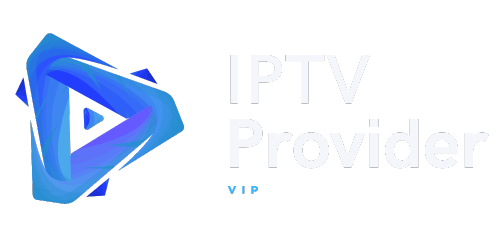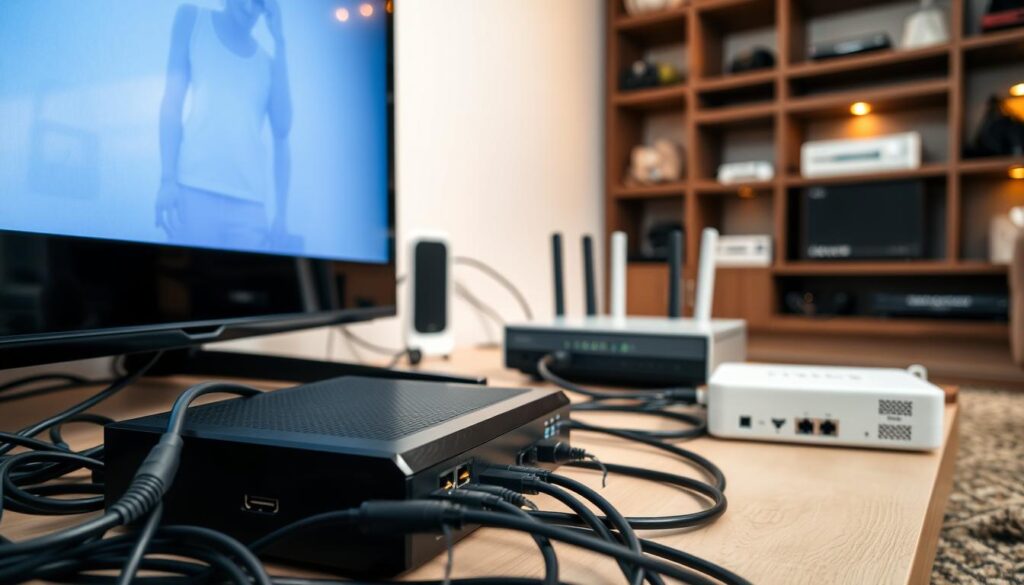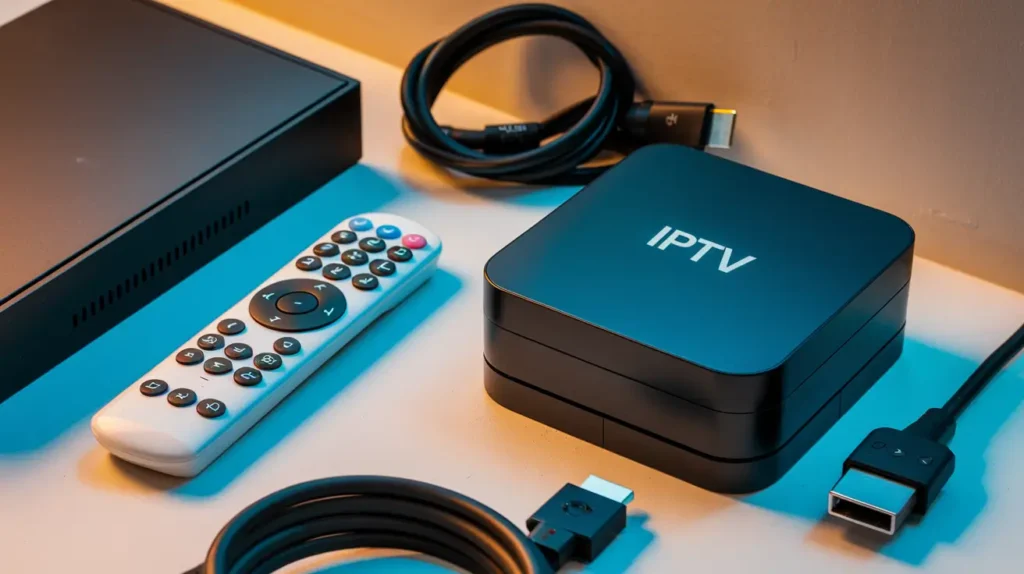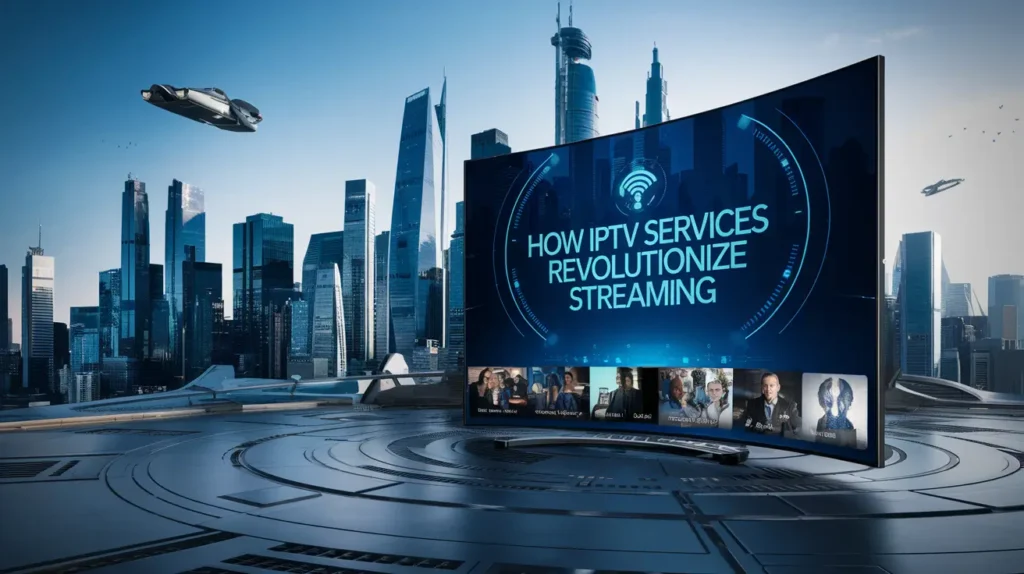How IPTV Gear Helps You Stream in High Definition
achrafmannani
March 8, 2025
Did you know the IPTV market is set to hit $117.2 billion by 2025? It’s growing at 14.5% each year from 2019 to 2025. This boom is because more people want high-definition streaming. IPTV gear is key to a better viewing experience.
With IPTV gear, you get access to lots of high-definition content. This includes live TV and video on demand. It’s a big deal for streaming lovers.
IPTV gear is vital for streaming high-definition content. It offers a top-notch viewing experience. The rise in internet-connected devices is fueling this demand.
By 2030, we’ll have over 50 billion connected devices. IPTV services give you over 16,000 live TV channels. Plus, 4K Live IPTV has 68,400+ movies and 17,200+ TV shows. Let’s explore the 5 key technologies behind IPTV gear.
Understanding IPTV Gear: The Foundation of HD Streaming
IPTV gear uses internet protocol to stream TV channels and videos online. It’s different from Traditional TV, which uses cable or satellite. To start an IPTV system, you need a set-top box, an IPTV service subscription, and good Internet.
For a smooth viewing experience, a reliable IPTV Setup is key. You can learn more about IPTV by visiting this resource. It explains IPTV basics and its advantages over Traditional TV.
When setting up your IPTV gear, consider these important factors:
- Internet speed: You need at least 25 Mbps for HD streaming.
- Device compatibility: Pick a set-top box or smart TV that works with your IPTV service.
- Internet Connectivity: A steady connection is vital for streaming without interruptions.
Understanding IPTV gear and its differences from Traditional TV helps you make better choices. This way, you can enjoy high-quality streaming with reliable Internet.
The Evolution of High-Definition Streaming Technology
High-Definition Streaming has changed a lot over time. This change came from better video compression and faster internet. At first, digital TV signals needed 200 Mbit/s. But, thanks to new tech, it dropped to about 2 Mbit/s. This made High-Definition Streaming more popular.
ADSL technology also played a big role. It made internet speeds go from 0.1 Mbit/s to 2 Mbit/s. This was a big step forward. The first high-definition IPTV channels in North America started in 2005 by SureWest Communications. This was a major step in High-Definition Streaming’s growth.
- Digital TV signals reduced from 200 Mbit/s to 2 Mbit/s due to motion-compensated DCT compression
- ADSL technology improved copper wire bandwidth from 0.1 Mbit/s to 2 Mbit/s
- SureWest Communications launched the first high-definition IPTV channels in North America by 2005
These changes have made IPTV better. Now, many services offer HD and 4K streaming. With ongoing tech improvements, High-Definition Streaming’s future looks bright. The global IPTV market is growing. More people want personalized viewing and flexible content delivery.
Key Components of Modern IPTV Equipment
Modern IPTV equipment offers a top-notch viewing experience. It has several key parts that work together well. These include IPTV Set-Top Boxes for streaming high-definition content. Smart TV Integration lets users access IPTV services on their smart TVs. A fast and stable internet connection is also vital, thanks to the Network Infrastructure.
IPTV Set-Top Boxes are crucial for modern IPTV equipment. They let users watch a wide range of channels in high definition. These boxes support various codecs, like MPEG4, and stream content quickly. Smart TV Integration is also popular, allowing users to access IPTV services on their smart TVs without needing a separate box.
A fast and stable internet connection is key for streaming high-definition content. IPTV services need a lot of bandwidth to stream without interruptions. The Network Infrastructure must have a minimum internet speed of 10 Mbit/s for HD content. It also needs a dedicated VLAN for transporting IPTV streams in multicast configurations.
Modern IPTV equipment offers many benefits. These include:
- High-definition streaming
- Access to a wide range of channels
- Fast and stable internet connection
- Support for various codecs, such as MPEG4
- Smart TV Integration options
How Video Compression Technologies Enable HD Streaming
Video compression technologies are key for HD streaming. They make video files smaller, allowing for quicker streaming. This means a smoother viewing experience for everyone.
The H.264 codec was a big step in 2003, becoming the standard for video compression. But, newer codecs like HEVC (H.265) and AV1 offer even better efficiency. They help make video files smaller and easier to stream.
For instance, HEVC can compress files up to 50% more than H.264. AV1 can do about 30% better than HEVC. This means a 2-hour 4K movie can be just 7 GB with AV1, down from 20 GB with H.264. This big drop in file size makes streaming faster and uses less bandwidth.
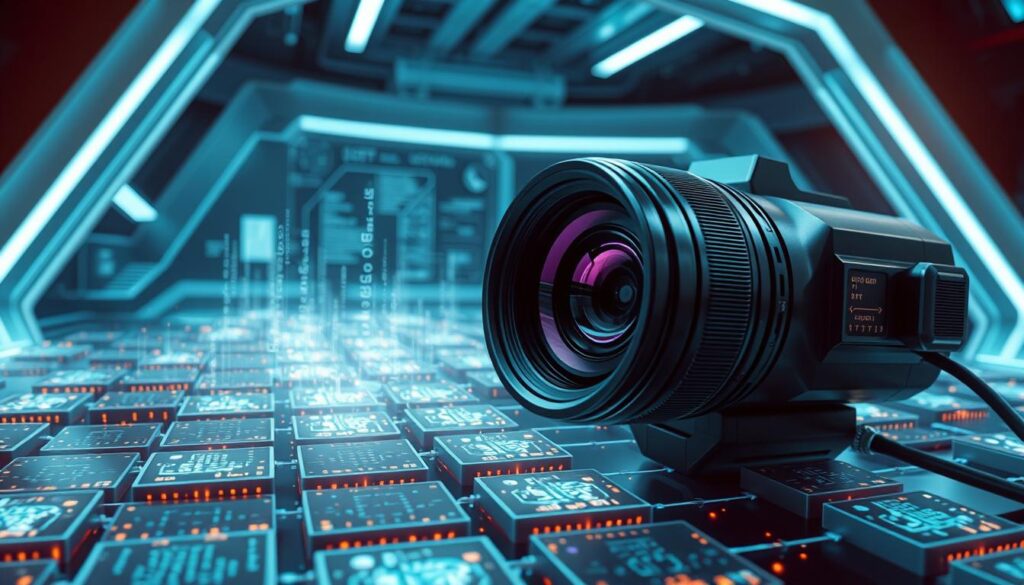
- Reduced file sizes, making it easier to store and transmit video files
- Faster streaming, resulting in a more seamless viewing experience
- Lower bandwidth requirements, reducing the cost of streaming and making it more accessible to a wider audience
Video compression technologies are crucial for HD streaming. They make video files smaller and use less bandwidth. This lets us stream high-quality video on many devices, from phones to smart TVs.
Network Quality of Service (QoS) for Seamless Viewing
For a smooth viewing experience, network QoS is key. It keeps your internet connection stable and fast. This is crucial for streaming high-definition content without breaks.
To make this happen, bandwidth management, buffer control, and traffic prioritization are used. Network QoS guidelines show these methods prevent buffering and improve your viewing.
Several things can impact network QoS. These include internet speed, network congestion, and device limits. For example, you need at least 5 Mbps for HD streaming. For 4K, you need 25 Mbps or more.
To improve your home network, use wired Ethernet connections. Keep your router’s firmware updated. Also, limit the number of devices connected to free up more bandwidth.
To make IPTV traffic a priority, use Quality of Service (QoS) settings on your router. This ensures IPTV gets priority over other internet traffic. This reduces buffering chances.
Using devices with better processors and more RAM also helps with HD streams. Adaptive streaming adjusts video quality based on your internet speed. This helps avoid buffering.
By using these techniques and optimizing network QoS, you can enjoy seamless viewing. This is crucial for IPTV providers to keep their service quality high. By focusing on network QoS, they can give their users a top-notch viewing experience.
Advanced Features of Premium IPTV Gear
Premium IPTV Gear brings a lot of cool features to your screen. You get over 10,000 live channels and more than 20,000 movies and TV shows. It also supports 4K resolution, HDR, and Dolby Atmos for a top-notch viewing experience.
Some of the key features of Premium IPTV Gear include:
- High-definition streaming with FHD, HD, and SD options
- Access to a large library of movies and TV shows
- Advanced audio features like Dolby Atmos
- Support for multiple devices, including smartphones, tablets, and smart TVs
These features make Premium IPTV Gear a top pick for quality streaming. Its easy-to-use interface and vast content library make it perfect for those seeking a premium IPTV experience.
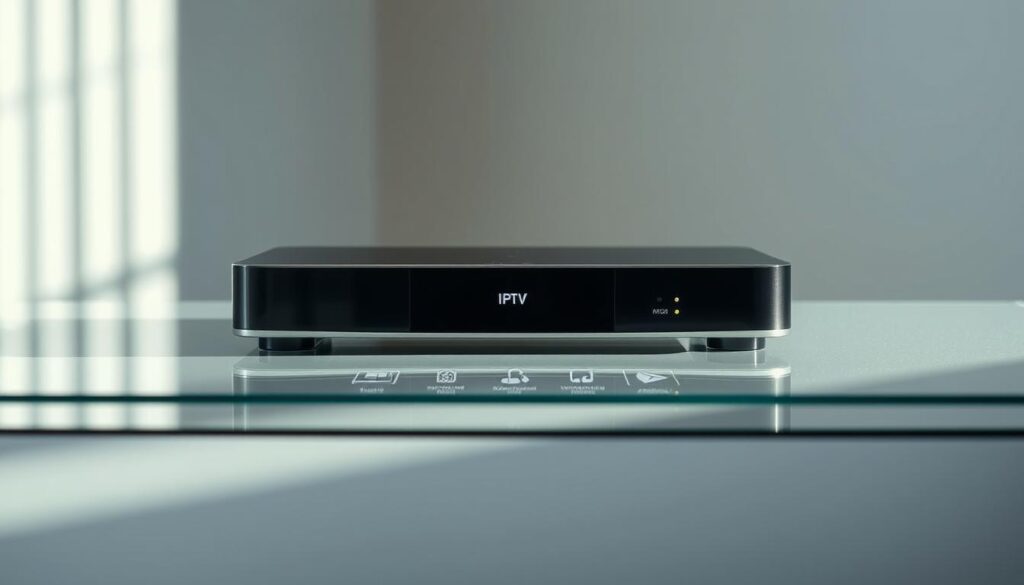
Premium IPTV Gear also offers great value. Subscription plans start at $15 for 1 month and $80 for 12 months. With its advanced features and affordable prices, it’s a great choice for anyone looking for a top IPTV experience.
Troubleshooting Common HD Streaming Issues
HD streaming problems can be annoying, but they can be fixed with the right steps. One big issue is connection problems. These can be solved by checking your internet connection and making sure it’s stable. You need at least 5-10 Mbps for HD streaming. Using Ethernet instead of Wi-Fi can help keep your connection steady.
Picture quality is key in HD streaming. To get the best picture, make sure you’re streaming in high definition. Adjust your video settings to the highest quality. For example, HD content needs at least 5 Mbps, while 4K needs 25 Mbps or more.
- Check the internet connection and ensure that it is stable
- Adjust the video settings to optimize picture quality
- Consider upgrading to a faster internet plan if necessary
- Use a wired connection instead of Wi-Fi to reduce latency and buffering
For more info on fixing IPTV buffering issues, check out this resource. It has tips on solving IPTV buffering problems.
Security Features in Modern IPTV Systems
Modern IPTV Systems focus on IPTV Security, making sure users have a safe viewing experience. They use encryption and secure authentication to meet the demand for personalized content.
These features block unauthorized access to IPTV services. They protect user data and keep the system safe. IPTV Security is key in Modern IPTV Systems. It lets users watch content anywhere with an internet connection.
Some important security features of Modern IPTV Systems include:
- Encryption: protects data sent between devices
- Secure authentication: checks user identity and access rights
- Access control: limits access to authorized users and devices
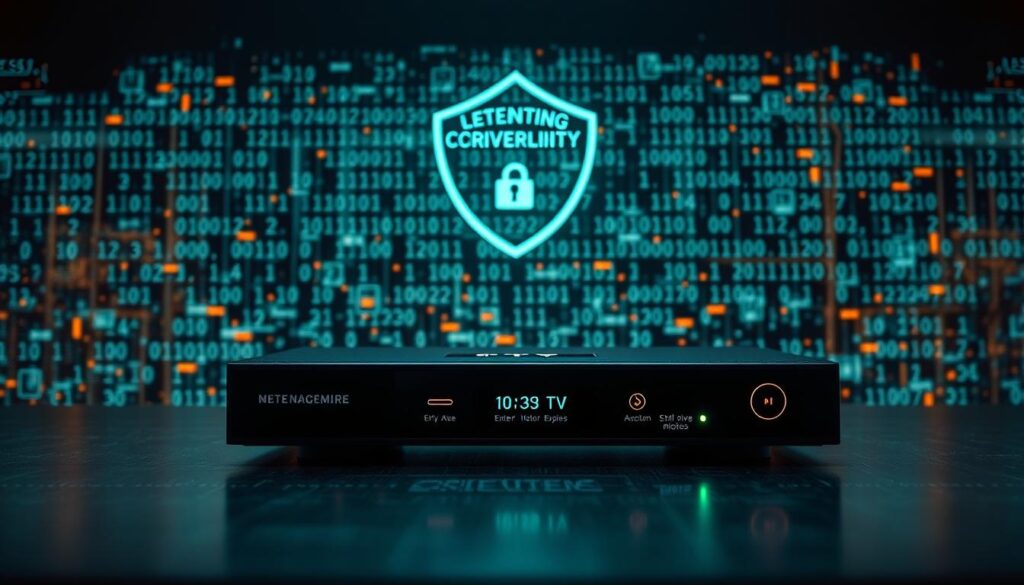
In summary, Modern IPTV Systems put a big emphasis on IPTV Security. They offer a safe and reliable way for users to watch content. With advanced security features, IPTV systems protect user data and keep the system safe.
Maximizing Your IPTV Performance
To get the best out of your IPTV, you need to follow some key steps. These include setting up your system right, using tools to check its performance, and keeping it updated. A well-optimized IPTV system means you get to enjoy your favorite shows in top-notch quality.
First, make sure your internet connection is strong. You’ll need at least 25 Mbps for HD streaming. Also, pick the right gear, like a high-definition TV and a reliable streaming device. Tools for monitoring performance can spot problems like buffering and give you insights into how your system is doing.
Don’t forget about regular upkeep. This means updating your software and firmware, clearing out temporary files, and making sure you have enough storage. By sticking to these steps and using performance tools, you’ll keep your IPTV system running smoothly. This ensures you get the best viewing experience possible.
Here are some important tips for better IPTV performance:
- Ensure a stable internet connection
- Choose the right equipment
- Use performance monitoring tools
- Keep your system updated
By following these tips, you can make sure your IPTV is performing at its best. This means you’ll enjoy your favorite shows in the highest quality.
Future-Proofing Your IPTV Setup
To stay ahead in the IPTV Future, keep up with new IPTV tech. Get the latest gear and software for better service and viewing. It’s key in today’s fast-changing entertainment world.
American homes spend over $200 a month on TV. Streaming services are changing how we watch. A future-proof IPTV setup keeps you ahead of this change. For more on preparing for next-gen IPTV, check out this resource.
Future-proofing your IPTV setup offers many benefits:
- Access to the latest features and services
- Improved picture and sound quality
- Enhanced user experience
- Increased compatibility with various devices
By focusing on Future-Proofing, you’ll enjoy top-notch entertainment for years.
The Environmental Impact of IPTV Technology
IPTV technology is becoming more popular. It offers high-definition streaming without needing special hardware. This is good for the environment because IPTV uses the internet, which is more energy-efficient.
Using the internet for IPTV means less energy is used. This is because it combines many services into one. This makes IPTV better for the planet than old TV systems.
Some key reasons IPTV is better for the environment include:
- It doesn’t need special equipment like dishes and receivers.
- It uses less energy because it runs on the internet.
- It produces less waste because it works with devices that can do other things too.
Also, many IPTV providers are using renewable energy for their data centers. They use wind, solar, and hydroelectric power. This makes IPTV even more eco-friendly than before.
In summary, IPTV is a greener choice for streaming. It’s more energy-efficient, which is good for our planet.
Conclusion
IPTV Gear changes how we watch high-definition streaming. It uses advanced tech for better video and security. This means users get a top-notch viewing experience.
With IPTV Gear, you get thousands of live TV channels and a huge on-demand library. This lets you enjoy content in a new way. It’s all about giving you the best streaming experience.
Even though IPTV Gear might not have every feature, it excels in high-definition streaming. As tech gets better, IPTV Gear will too. This means you’ll always be ahead in the streaming game.
Choosing IPTV Gear means your home entertainment will stay up-to-date. You’ll get to enjoy the latest in high-definition content. It’s a smart choice for the future of streaming.
